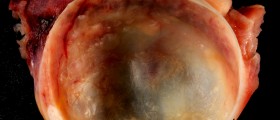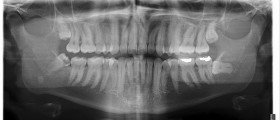
Treatment of ovarian cysts dependsgreatly on the symptoms that the patient is experiencing. The levelof pain present and the type of the cyst or cysts are also crucialfactors for a successful treatment of this condition. Finally,postmenopausal women undergo different treatments in comparison topremenopausal women.
Treatment for Premenopausal Women
Quite commonly, the cysts may disappearon their own without any intervention, when left alone for a month ortwo. Thus, surgery is usually seen as a last resort with this groupof women. However, there are cases where ovaries may twist around theinside of a woman's body, causing the cysts to rupture, leading to alife-threatening situation which needs to be taken care of as soon aspossible, through surgery. For these reasons, every cyst needs to beanalyzed through a sonogram. If a cyst looks benign and does notcause any pain or discomfort, it is left for two months to disappearon its own. Yet, if this does not happen, further interventions aretaken, including the surgery.
Surgical Treatment for Ovarian Cysts
The surgery may involve draining outthe cyst or removing the whole ovary. The latter variant is commonlyrecommended for older women who are facing an increased risk ofdeveloping ovarian cancer. In some cases, big cysts destroy the ovarytissue significantly, making surgical removal of the whole organ amust.
Alternatively, one may undergolaparoscopy. This procedure involves opening the cyst with alaparoscopic instrument and draining it before removing itcompletely. Once the surgery is done, patients need to stayhospitalized for an additional day, before they are free to go homeand rest for two weeks. Once the rehabilitation period is over, theycan return to their jobs and other regular activities. Note that thelaparoscopic instrument gets inserted in the body through smallincisions made on the skin.
Every ovarian cyst removal surgerycomes with a risk of losing the entire ovary or damaging the eggs.
After any surgery of this type, where awoman's ovary has been removed, numerous changes can affect a femalebody, especially if she is in her premenopausal period. Women whohave passed their menopausal period have ovaries which do not producehormones anymore, thereby being unaffected by their removal. Usually,doctors and surgeons do their best to save the ovaries and allowwomen to get pregnant after the surgery. Unfortunately, this is notalways possible.

















Your thoughts on this
Loading...